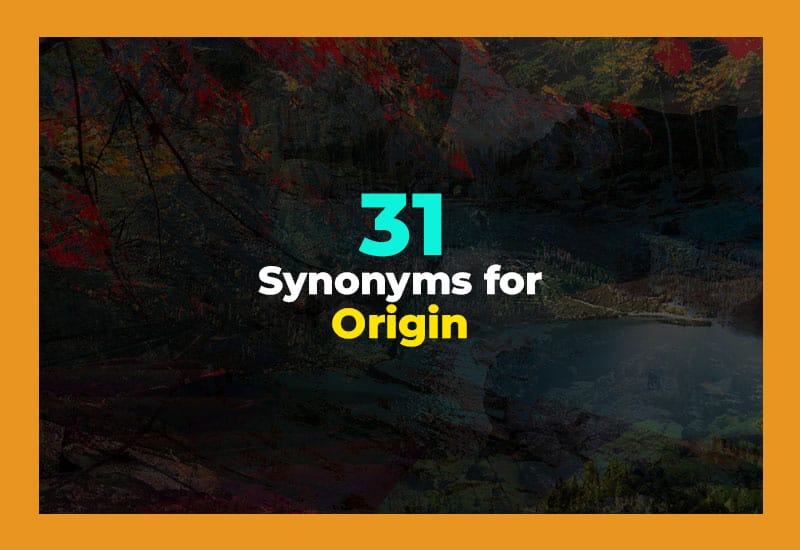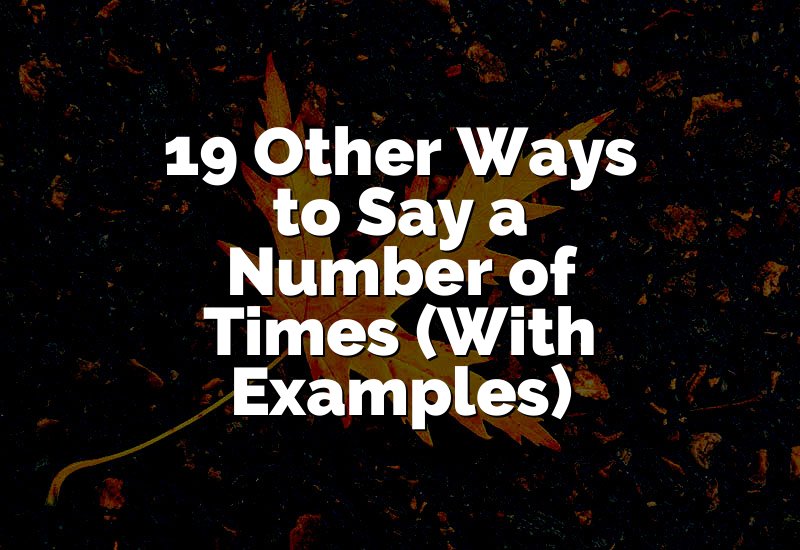You know how sometimes you want to say “origin” but it feels too plain? In this article, we are going to have fun exploring 31 other ways to say ORIGIN. Words like “root”, “source”, or even “starting point” can make your sentences sound fresher. So, grab a cozy seat, and let’s make your word choice more exciting together.
| Synonym | Meaning | Example |
|---|---|---|
| Source | The place something comes from | The river is the source of fresh water. |
| Root | The base or starting cause | The root of the problem was lack of trust. |
| Beginning | The start of something | Every story has a beginning. |
| Start | The first part of something | She was nervous at the start of the race. |
| Foundation | The base on which something is built | Trust is the foundation of friendship. |
| Cause | The reason something happens | Stress was the cause of his headache. |
| Birthplace | The place where something began | This town is the birthplace of jazz. |
| Dawn | The early stage of something | The dawn of technology changed the world. |
| Genesis | The very start or creation of something | The book tells the genesis of the universe. |
| Inception | The initial stage of an idea or project | The company’s inception was in 1995. |
| Starting Point | The position where something begins | The park was the starting point of our hike. |
| Launch | The act of starting something new | The product launch was a huge success. |
| Onset | The beginning of something, often sudden | The onset of winter came early this year. |
| Rise | The first growth of something | The rise of social media changed communication. |
| Emergence | The process of coming into view | The emergence of new ideas was inspiring. |
| Debut | The first appearance of something | Her debut album sold millions. |
| Seed | The small beginning that grows into more | Kindness is the seed of true love. |
| Outset | The very start of an activity | At the outset, everything looked easy. |
| Creation | The act of making something new | The creation of art brings joy. |
| Commencement | The official start of something | The ceremony marked the commencement of studies. |
| Origination | The process of coming into being | The origination of the plan was simple. |
| Heritage | The original background or culture | The city is proud of its cultural heritage. |
| Ancestry | The line of family origin | His ancestry goes back to ancient times. |
| Provenance | The place of original source | The provenance of the painting is unknown. |
| Starting Line | The first point in a race or journey | He stood ready at the starting line. |
| Groundwork | The early preparation stage | The groundwork was set for success. |
| Fountainhead | The original source of something | Curiosity is the fountainhead of knowledge. |
| Opening | The very first stage | The play’s opening was powerful. |
| Kickoff | The start of an event or process | The game kickoff was exciting. |
| Inauguration | The formal start of something new | The bridge inauguration drew a big crowd. |
| Trigger | The thing that starts an action | The loud noise was the trigger for panic. |
Source
When we use the word “source”, we are often talking about the main place or starting point from which something comes. It could be water, information, or even ideas. It gives us the image of something flowing from one point. For example, we might say a spring is the source of a river, or a book is the source of knowledge.
- The library is the source of many facts.
- The sun is the source of light.
- The rumor came from a single source.
Root
The word “root” often describes the base or hidden part where something begins. Just like a tree’s root, it is the unseen cause or reason behind growth or problems. We can use it to explain where an idea, habit, or issue truly comes from. Using “root” feels strong and meaningful, like touching the heart of the matter itself.
- The root of fear is often uncertainty.
- The tradition has its root in ancient times.
- The root of joy is gratitude.
Beginning
The word “beginning” shows the fresh start of something new. It points to the first part of a story, a journey, or even a simple task. Using it makes the idea clear, and it adds a feeling of excitement. After all, every beautiful story or big dream has its beginning before it grows into something greater.
- The beginning of the movie was thrilling.
- She smiled at the beginning of the song.
- The beginning of summer feels magical.
Start
The word “start” is very direct and simple. It talks about the very first step or moment of something. It can be used in sports, daily life, or even big life events. Saying “start” helps us imagine that first step forward. It is often full of energy and hope because everything is still open to possibility.
- The start of school is always exciting.
- He was nervous at the start of the meeting.
- The start of spring brings flowers.
Foundation
“Foundation” is often used when we want to describe the strong base of something. Just like a house needs a firm base to stand, many things in life depend on their foundation. It can be used to talk about ideas, relationships, or projects. A strong foundation means everything built on it has a better chance to last.
- Love is the foundation of marriage.
- Education is the foundation of progress.
- Trust is the foundation of peace.
Cause
The word “cause” points to the reason behind something happening. It helps us explain why things take place. We can use “cause” for good or bad results. It often carries a sense of searching for answers. People use it when they want to find what started a situation or what created a certain effect.
- The cause of the accident was rain.
- Hunger was the cause of his weakness.
- Stress was the cause of mistakes.
Birthplace
The word “birthplace” describes the place where something or someone first came into being. It adds a sense of history and special value. People often use it for towns, cities, or even countries where music, art, or traditions first began. Calling a place the birthplace of something gives it honor and importance.
- This city is the birthplace of opera.
- The birthplace of democracy is Greece.
- That town is the birthplace of my family.
Dawn
“Dawn” gives us the image of early morning light, but it can also mean the first stage of something. It shows a soft beginning, like when something slowly comes to life. People use “dawn” when talking about new ages, fresh eras, or early discoveries. It feels poetic and brings hope for what is to come.
- The dawn of freedom brought joy.
- The dawn of peace was welcomed.
- The dawn of a new age is near.
Genesis
The word “genesis” has a strong and formal tone. It refers to the very creation or first moment of something important. People use it when talking about the birth of big ideas, history, or even the universe itself. Saying “genesis” makes the beginning feel grand and powerful, as if it is the true start of something important.
- The genesis of art is human creativity.
- The project had its genesis in 2001.
- That was the genesis of their success.
Inception
“Inception” is used to describe the starting point of a project, idea, or journey. It often feels official and thoughtful, like marking the true beginning of a plan. People often use this word in professional or creative settings. It makes the start sound meaningful, as if everything that follows is built upon that first moment.
- The firm’s inception was in 2010.
- His career had a bright inception.
- That was the inception of their plan.
Starting Point
“Starting point” means the place or moment where something begins. It can be used for journeys, races, or even ideas. This phrase makes the beginning feel like a clear marker, a moment where everything starts to unfold. People use it when they want to highlight the very first step in a process or adventure.
- The race had a clear starting point.
- The project used this as its starting point.
- That was the starting point of change.
Launch
The word “launch” is often linked to something new beginning in a big way. We think about rockets, ships, or even new products starting with energy. It makes the beginning feel powerful and important. People use it when they want to show excitement, celebration, or impact as something new begins its journey.
- The launch of the game was exciting.
- They prepared for the rocket launch.
- The launch brought new opportunities.
Onset
“Onset” means the beginning of something, often something sudden. It can be used in both good and bad ways, but it usually shows a strong start. People might use it for seasons, emotions, or even illnesses. It gives the sense that something new has just started to happen, sometimes without warning.
- The onset of rain surprised us.
- The onset of winter came fast.
- The onset of laughter filled the room.
Rise
The word “rise” shows growth, increase, or the start of upward movement. It makes the beginning sound powerful, like something is climbing up. People use “rise” to describe changes, success, or the start of new trends. It feels inspiring because it points to progress and moving forward into something greater.
- The rise of music shaped culture.
- The rise of hope lifted spirits.
- The rise of the sun is beautiful.
Emergence
“Emergence” describes the process of coming into view or becoming known. It is often used when something grows slowly and then becomes visible. People might use it for new ideas, talents, or even movements. It feels gentle yet strong, like watching something hidden finally step into the light.
- The emergence of spring brought joy.
- The emergence of talent surprised many.
- The emergence of peace gave hope.
Debut
The word “debut” talks about the very first public appearance of someone or something. It is often used for art, music, or performance. Saying “debut” adds excitement because it marks the beginning of being seen or known. It carries a feeling of pride and anticipation for what is new and fresh.
- Her debut movie was a hit.
- His debut song reached the charts.
- The debut of the play was magical.
Seed
“Seed” represents the small beginning that grows into something larger. It gives us a picture of planting and future growth. People use it when talking about ideas, kindness, or dreams that slowly grow. The word makes the start feel fragile but full of possibility, like something tiny that can become huge over time.
- A seed of hope grew in her heart.
- That thought was the seed of success.
- Love is the seed of peace.
Outset
The word “outset” means the very start or opening stage of something. It is often used to describe how things look or feel at the beginning. People may use it when they want to mark the start clearly. Using “outset” gives a sense of planning, like we are noticing the first stage before moving forward.
- At the outset, he was calm.
- The outset of work felt easy.
- The outset of talks was friendly.
Creation
“Creation” is the act of making something new. It can be about art, inventions, or even new ideas. Using “creation” makes the beginning feel active, as if someone is shaping or building something. People love this word because it connects to imagination, effort, and bringing something new into the world.
- The creation of music brings joy.
- His painting was a new creation.
- The creation of love is endless.
Commencement
The word “commencement” means the formal start of something, often marked by a ceremony. It can be used for schools, jobs, or official events. Using it makes the beginning feel important and meaningful. People enjoy using this word when they want to give weight and honor to the start of something big.
- The commencement of school was joyful.
- His speech marked the commencement of peace.
- The commencement of talks gave hope.
Origination
“Origination” is the process of coming into being. It highlights the very start of something being formed. People may use it to describe ideas, plans, or creative works. This word shows the act of beginning in a thoughtful way, like looking back to where something first appeared or was born.
- The origination of art is timeless.
- His origination of the plan was clever.
- The origination of the style was new.
Heritage
“Heritage” often means the background or culture that something comes from. It is about what is passed down from the past. People use it when speaking of traditions, values, or art. Using this word adds a sense of pride and respect for where something began. It honors the original source of identity or value.
- Music is part of our heritage.
- The building reflects cultural heritage.
- Stories keep heritage alive.
Ancestry
The word “ancestry” points to family history or line of origin. It is often about where people come from through generations. Using this word makes the start personal and connected to identity. It helps explain the deeper background that shapes who we are. People often feel proud when they talk about their ancestry.
- His ancestry is rich in history.
- She explored her ancestry roots.
- The ancestry of kings is well known.
Provenance
“Provenance” is used to describe the original source or place of something. It is often connected with art, history, or valuable items. People use it when they want to trace back and show where something first came from. It feels thoughtful, like checking the history behind what we see today.
- The provenance of the vase is clear.
- They checked the painting’s provenance.
- The provenance of food matters.
Starting Line
The phrase “starting line” is most often used in races or competitions. It marks the very first point where things begin. People also use it for projects or journeys to describe that first position. It carries energy and excitement because it shows the moment right before action truly begins.
- He waited at the starting line.
- The starting line was crowded.
- She stood strong at the starting line.
Groundwork
“Groundwork” means the preparation done before something begins. It highlights the effort or plans that set the stage for success. People use this word to show that the start is not just sudden but carefully built. It makes the origin feel steady and reliable, ready to support what comes next.
- He laid the groundwork for peace.
- The groundwork helped the project grow.
- Good groundwork leads to success.
Fountainhead
“Fountainhead” is a poetic word for the original source of something. It gives the image of water flowing out of a fountain. People use it to show where big ideas, creativity, or wisdom truly begin. It makes the start feel deep, powerful, and endless, like something that will continue to give more.
- Hope is the fountainhead of change.
- Love is the fountainhead of joy.
- Curiosity is the fountainhead of learning.
Opening
The word “opening” means the very first part or the first chance. It can be about books, shows, or even new opportunities. People use it when they want to highlight that very first moment. This word gives a sense of freshness, like a door opening to something new and exciting.
- The opening of the shop was busy.
- The play’s opening was amazing.
- He took the opening to speak.
Kickoff
“Kickoff” is often used in sports, but it also works for any event or new start. It makes the beginning feel fun and energetic. People like this word because it gives life to the start of a party, project, or plan. Using it makes the moment sound active and full of energy.
- The kickoff party was exciting.
- The kickoff of the game was loud.
- The kickoff started the event well.
Inauguration
“Inauguration” is used to describe the formal start of something important. It can be a bridge, a leader, or even a new building. People use this word to mark the moment when something is officially opened or started. It adds ceremony and weight, making the beginning feel truly special.
- The inauguration of the bridge was grand.
- The inauguration brought joy to people.
- The inauguration of school was lively.
Trigger
The word “trigger” refers to the thing that causes something to begin. It is like the spark that sets off an action. People use it to show what event or detail started a chain reaction. It makes the start feel sudden but very clear, as if one small thing set everything else in motion.
- The news was the trigger of fear.
- That smile was the trigger of love.
- The sound was the trigger of panic.

Final Thoughts
So, as we explored, there are many ways to say ORIGIN, and each word brings its own color and feeling. From “source” to “trigger”, every synonym adds something unique. Choosing different words helps your writing sound richer and more alive. Next time you want to use “origin”, try one of these other words to make your sentences shine brighter.









